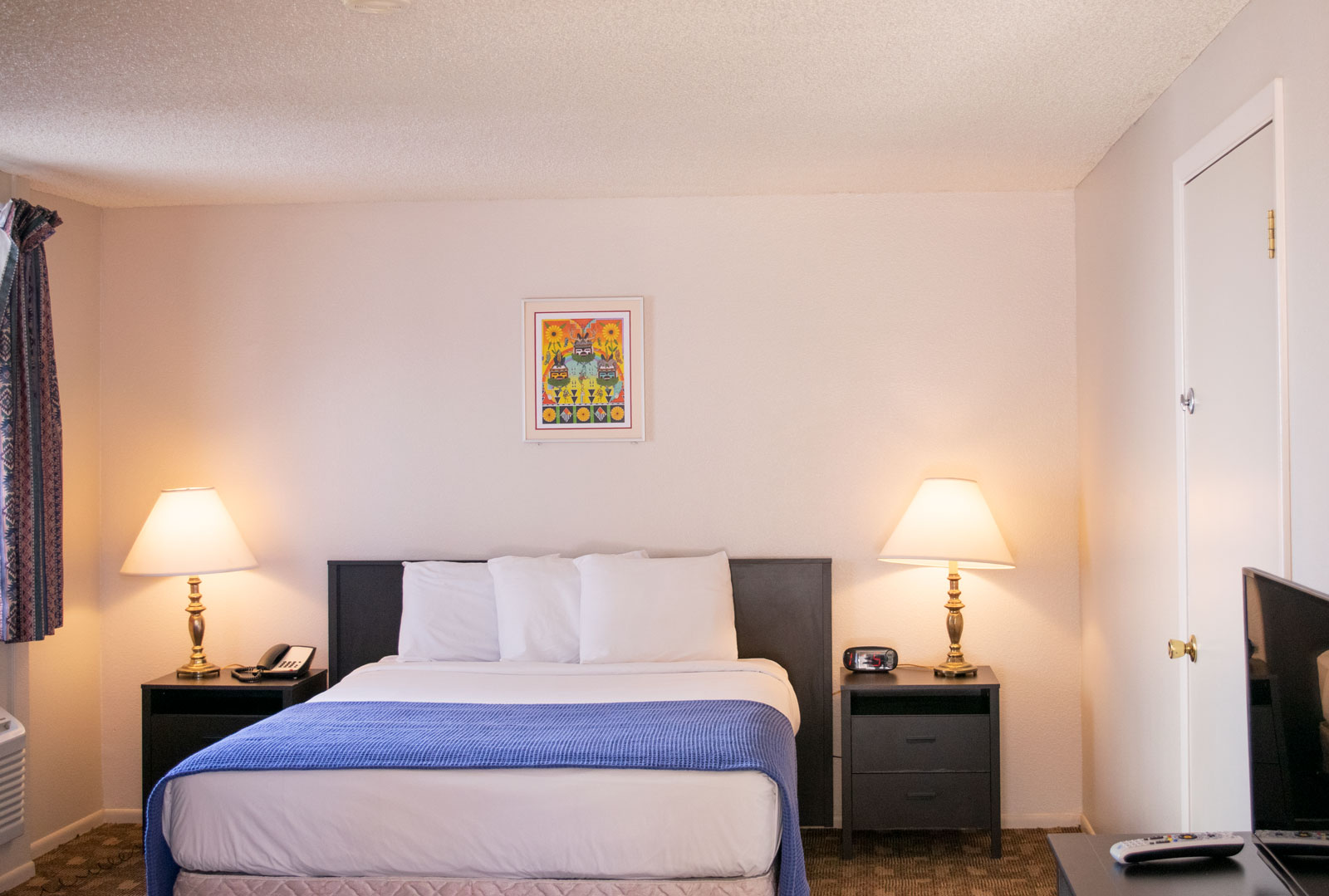WELCOME TO
The Land of Hopi
Hopi translated as ‘peaceful people’ are said to have lived in this region of the Southwestern United States since time immemorial. Today, among the 12 independent villages of Hopi, exist some of the oldest continuously inhabited settlements on the North American Continent dating back to 1100 A.D.
Hopi Reservation, Second Mesa, AZ
33 Rooms
Restaurant on-site
one with tradition
The Hopi Cultural Center has everything you need to experience the history and culture of the Hopi people.

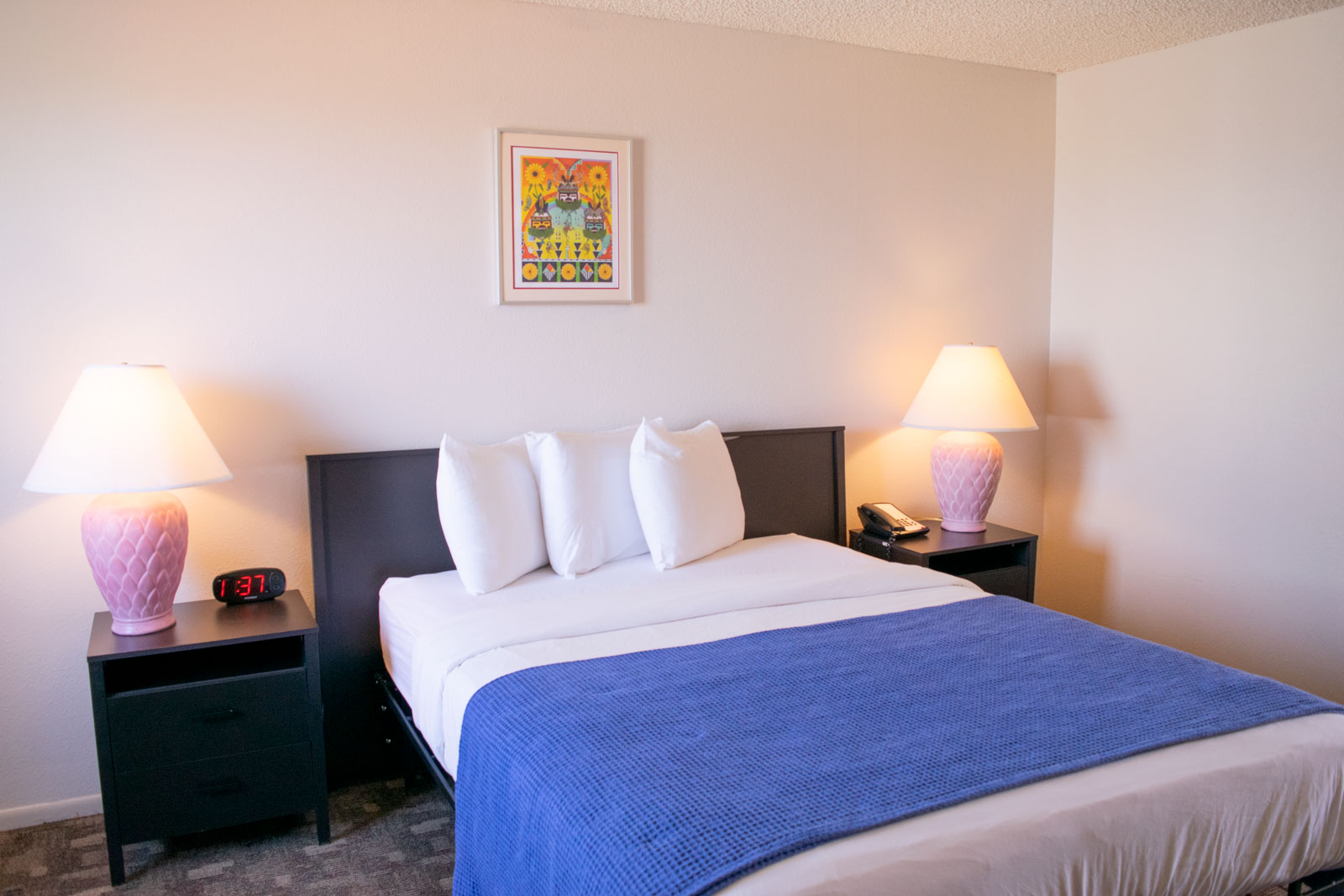
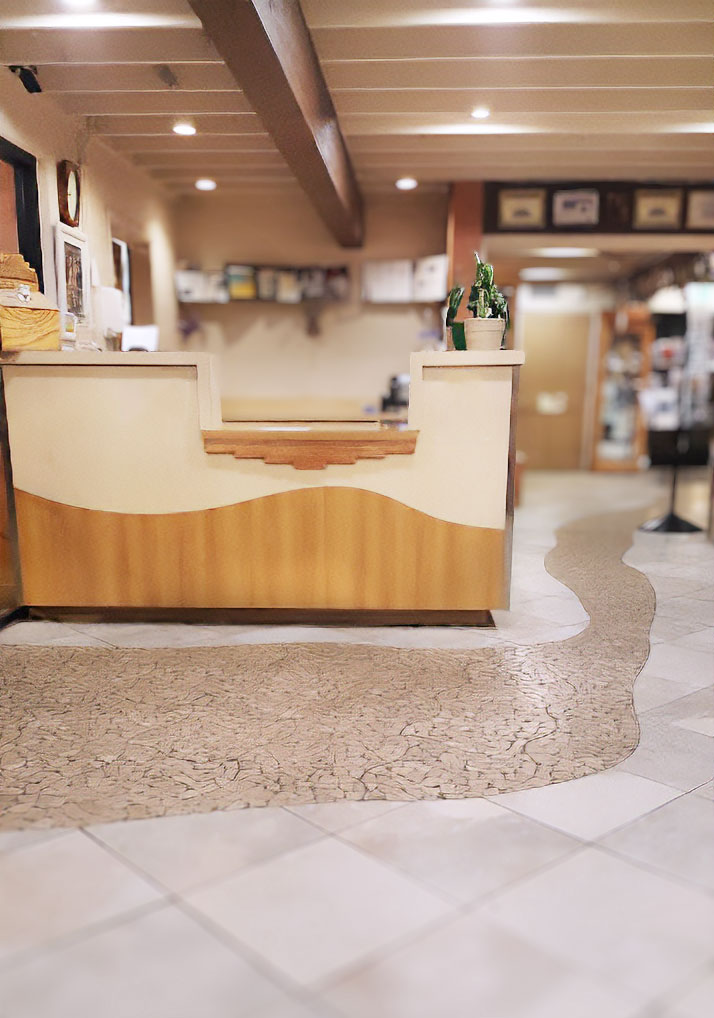
Hopi Cultural Center MOTEL
Open 361 Days a year with 33 spacious guest rooms.
The motel is open 361 days a year and features 33 spacious rooms. Single double bed or two double beds are available for booking. In all rooms are, mini – refrigerator, microwave, coffee maker, worktable, basic cable TV, telephone for local calls, and private bathroom.
(2 Handicap accessible rooms are available upon request at the time of check-in.)
Motel Front Desk Hours:
Hours of Operation:
Sunday – Saturday: 7:00 AM – 7:30 PM
(7 Days a Week)
CLOSED on the following Holidays:
THANKSGIVING DAY, THURSDAY, NOVEMBER 27, 2025
CHRISTMAS DAY, THURSDAY, DECEMBER 25, 2025
NEW YEAR’S DAY, THURSDAY, JANUARY 1, 2026
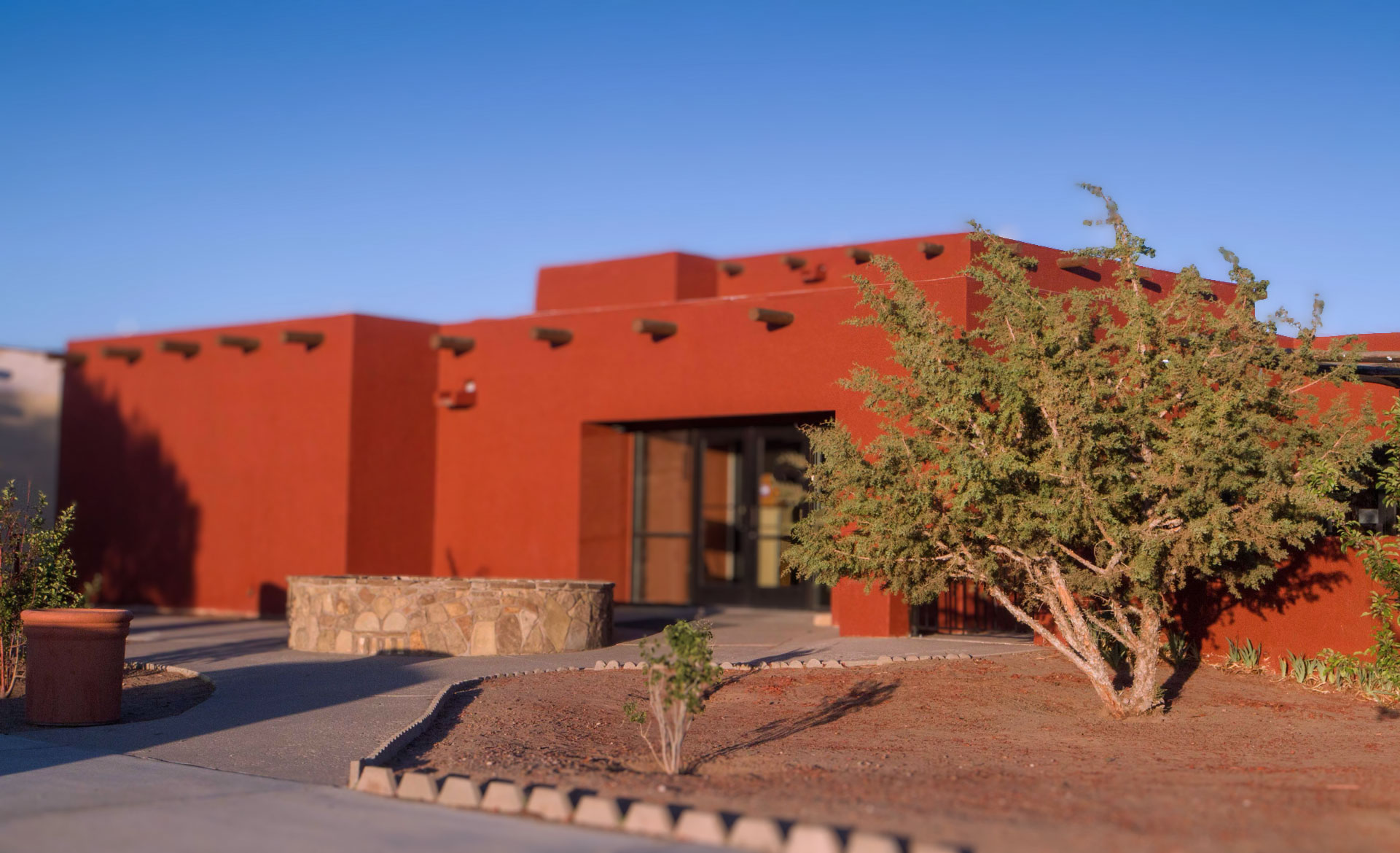
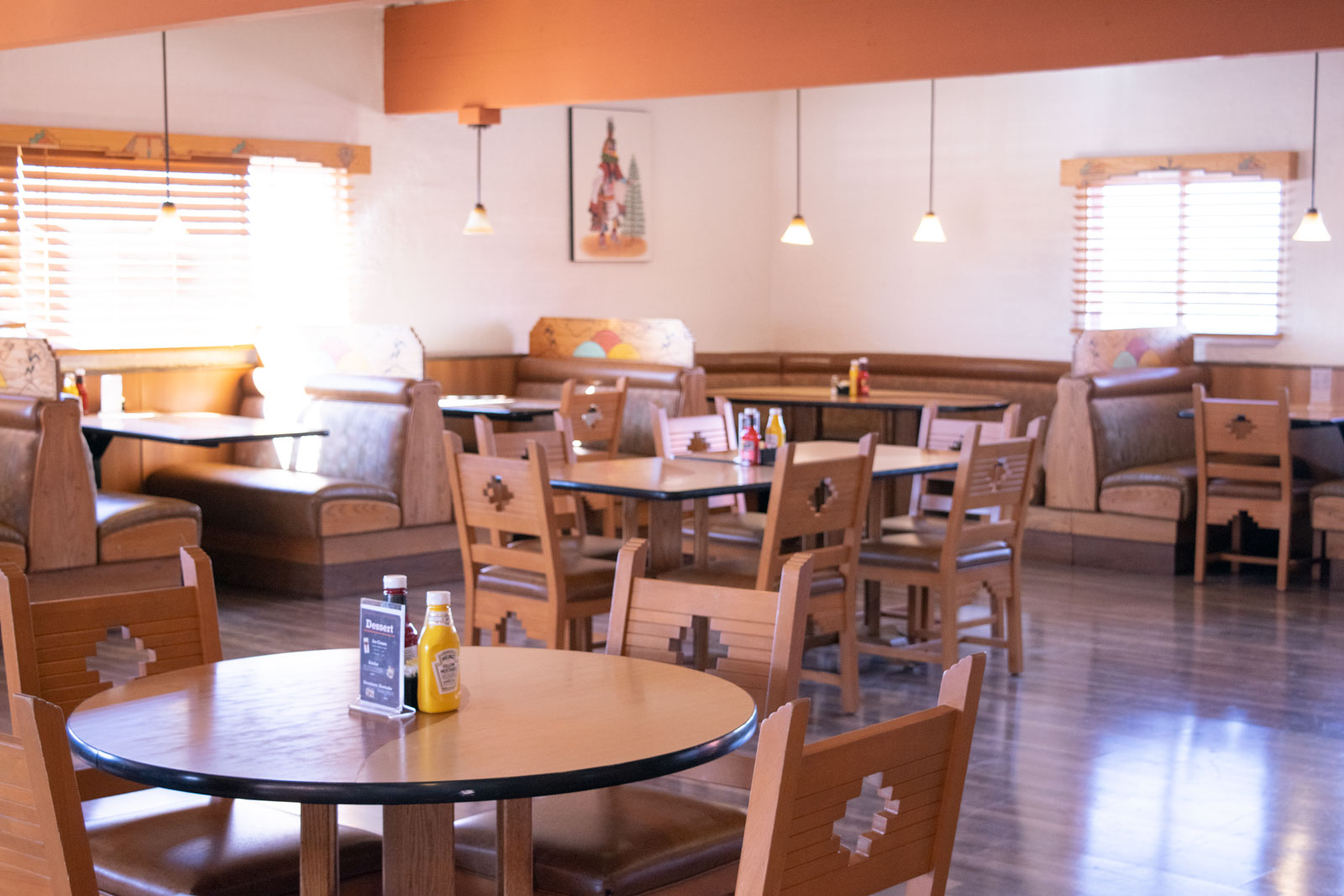
Hopi Cultural Center RESTAURANT
The restaurant is open Monday – Saturday for breakfast, lunch and dinner. Enjoy a selection of American and several traditional Hopi foods.
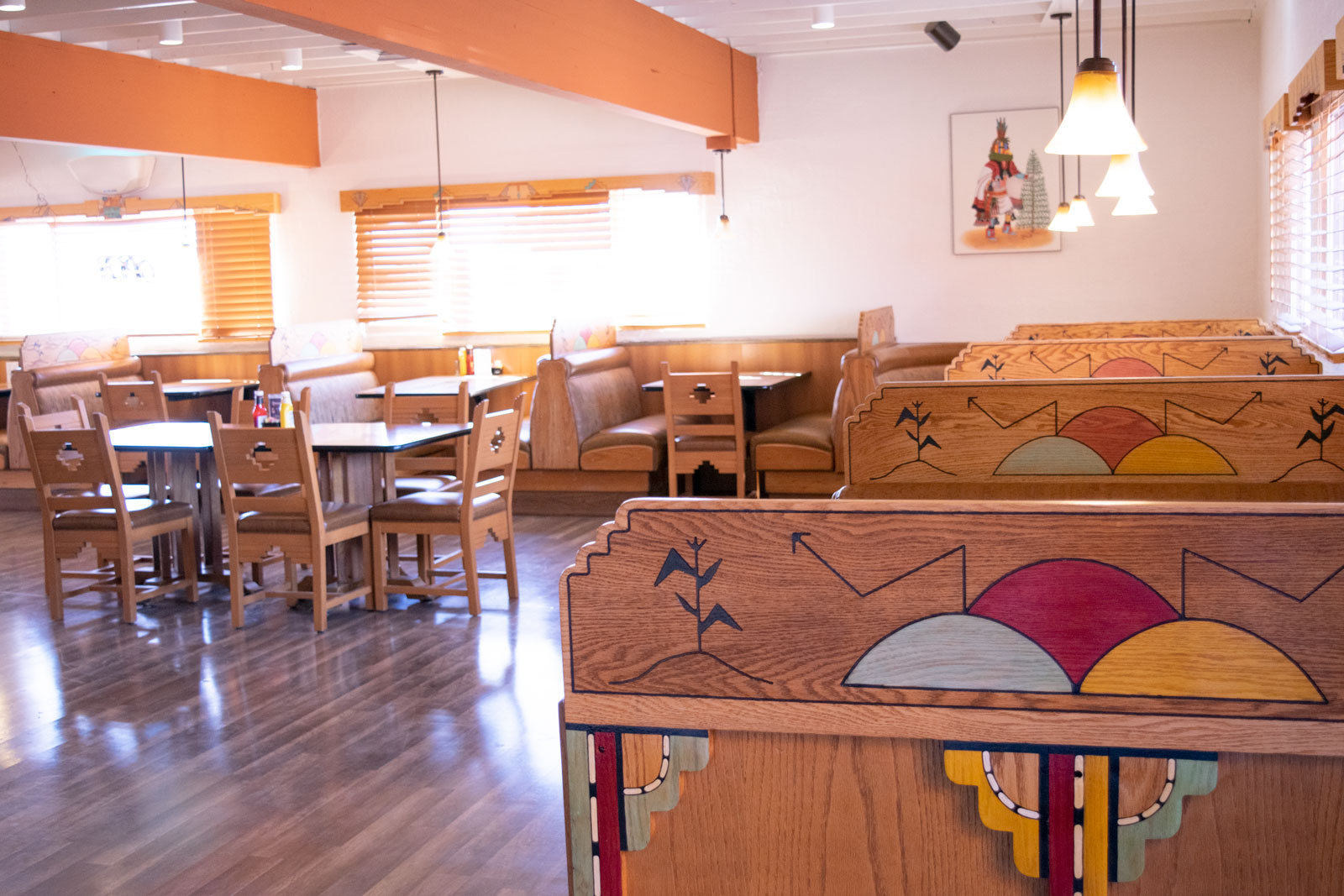

Restaurant Hours
Regular Schedule
Breakfast
Monday – Saturday
7:00 AM – 10:30 AM
(Closed on Sunday)
Lunch & Dinner
Monday – Saturday
11:00 AM – 7:00 PM
(Closed on Sunday)
Closed on the following Holidays:
Thanksgiving Day, Thursday, November 27, 2025
Christmas Day, Thursday, December 25, 2025
New Year’s Day, Thursday, January 1, 2026
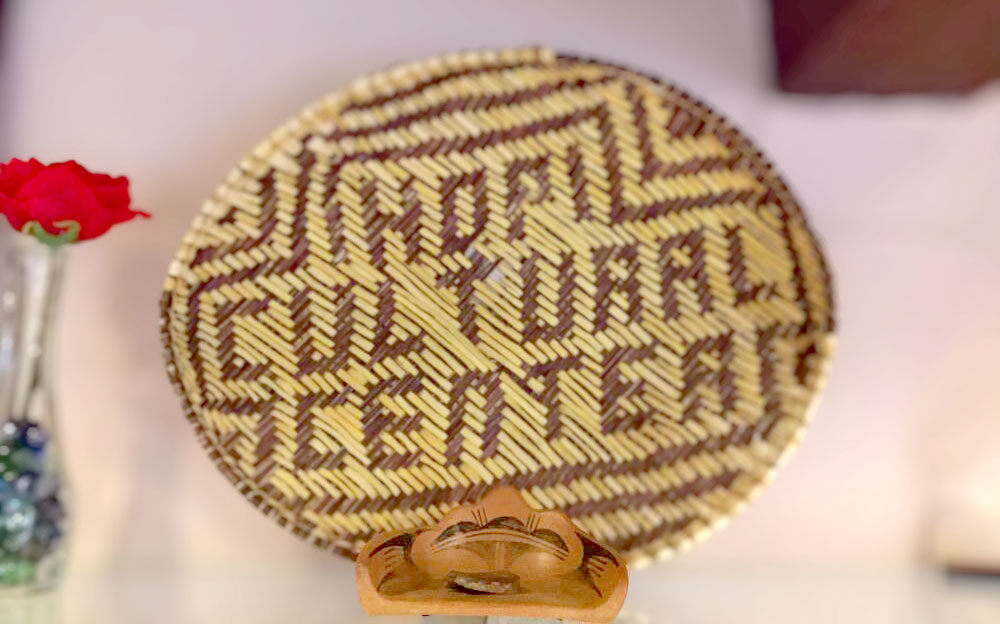
Hopi Cultural Center MEETING ROOM
The Hopi Cultural Center also offers a meeting room which can accommodate up to 20 people. Outdoor space for larger events and catering is also available for your consideration. Please contact us to discuss pricing options based on your requirements.
Hopi Cultural Center
Tu’hisveh Gift Shop
The Tu’hisveh gift shop (Place of Art) features artwork and handcrafts from several Hopi artists, including a wide array of handmade Hopi jewelry, Kachina dolls, paintings, pottery, jewelry, and much more! Several of the Hopi artists hold residencies in Hopi and are always producing new pieces.
Hours: Monday and Thursday – Sunday| 8:00 AM – 5:00 PM
(Closed: Tuesday & Wednesday)
Closed on the following Holidays:
Thanksgiving Day, Thursday, November 27, 2025
Christmas Day, Thursday, December 25, 2025
New Year’s Day, Thursday, January 1, 2026
Located in the business plaza of the Hopi Cultural Center.
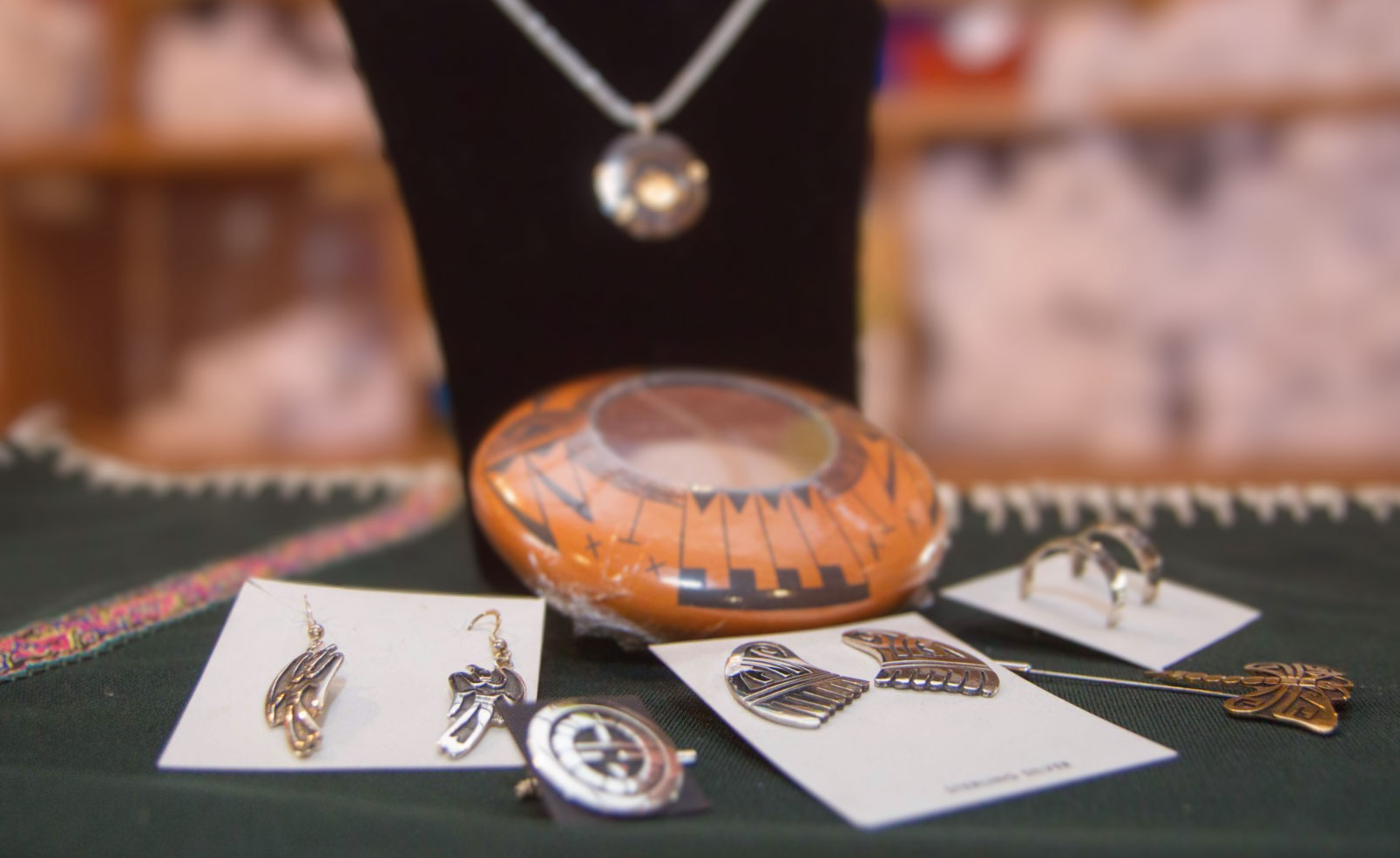
Discover
Our Rooms
Two Doubles
- Non-smoking
- Private Bathroom
- Sleeps 2 – 4
- Handicap-accessible rooms are available by request.
Our double bed guest rooms are spacious and comfortable, with easy access to the courtyard and many amenities.
Please allow 24 hours to receive your booking confirmation.
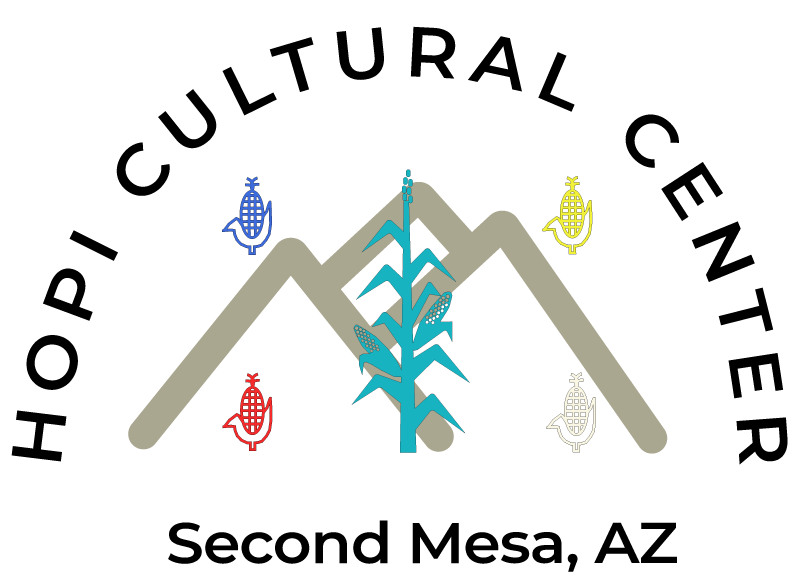
Amenities
We offer many amenities to make you feel at home, including cable TV, Wi-Fi, microwave, and mini refrigerators in our motel rooms for use during your stay.
Wifi

Microwave & Mini Fridge
Cable TV
Additional Amenities
Pet Friendly
Linen & Towels Provided
Free Parking
Air conditioned
Hairdryer Available
To-go breakfast (surcharge) 7:30 AM–11:00 AM daily
Rollaway extra beds for families available
Daily Housekeeping
Garden Area (Summer months only)
Checkin & Checkout
Checking is at 4:00 pm
Checkout is at 11:00 am
Cancellation Policy
Full refunds are available if the reservation is canceled at least 48 hours in advance.
House Rules
100% smoke-free
Front Desk Open Times
Our front desk is open 7:30 am to 8:30 pm
Explore the Centuries-Old History of
<<<<<<<<<<<<<<<<<<<<<<<<<<<>>>>>>>>>>>>>>>>>>>>>>>>>

